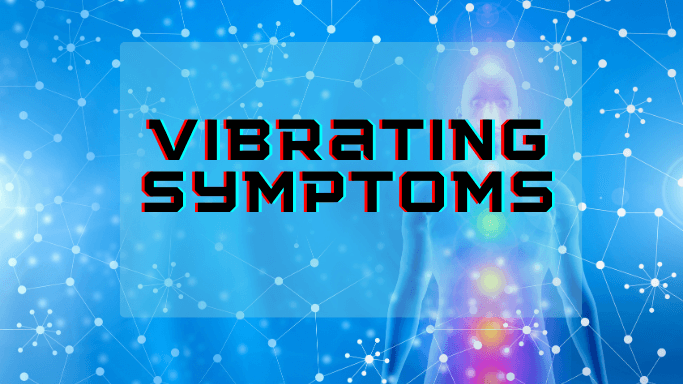21 Strong Reality Shifting Symptoms & Signs
“Shifting symptoms” can refer to symptoms that change or vary in location, intensity, or character over time. For example, a person with a migraine headache may experience shifting symptoms as the pain moves from one side of the head to the other, or as additional symptoms such as nausea or sensitivity to light arise and fade. Similarly, a person with multiple sclerosis may experience shifting symptoms as the disease progresses and affects different areas of the nervous system.
Shifting symptoms can also refer to symptoms that are caused by a condition that is constantly changing, such as autoimmune disorders or some forms of cancer. In such cases, symptoms may appear and disappear or may change in intensity or character as the underlying disease progresses or goes into remission.
It is important to note that many medical conditions can cause shifting symptoms, and a proper diagnosis is necessary to determine the underlying cause and appropriate treatment.
Dive deeper into the fascinating reality-shifting methods of this practice by exploring our comprehensive guide,
Top 21 Shifting Symptoms & Signs:
1. Flickering White Lights

Flickering white lights are a commonly reported symptom during a consciousness shift. This experience may manifest as flashes of light or a flickering sensation in one’s visual field. While the exact cause of this symptom is not fully understood, some theories suggest that it could be due to increased energy flow or changes in the way the brain processes visual information. Others interpret flickering white lights as a sign of spiritual awakening or a connection to higher realms of consciousness. If you experience this symptom during a consciousness shift, it is important to stay grounded and observe the experience with curiosity and openness.
2. Vibrating
Vibrating or tingling sensations in the body are another common symptom of a consciousness shift. This sensation may be felt most strongly in the hands and feet, but can also occur in other parts of the body.

Some people describe this sensation as a feeling of electricity or energy flowing through them. It is thought that vibrating sensations may be due to an increase in energy flow or a heightened state of awareness. If you experience vibrating sensations during a consciousness shift, it can be helpful to focus on your breath and ground yourself in the present moment. You may also find it beneficial to explore practices such as meditation or yoga to help support your energy and balance during the shift.
3. Dizziness
Dizziness is a common symptom of a consciousness shift, which can feel like a spinning or lightheaded sensation. This can be caused by changes in blood pressure, energy flow, or brain activity during the shift.

Dizziness can also be accompanied by feelings of disorientation, confusion, or a sense of being disconnected from one’s surroundings. If you experience dizziness during a consciousness shift, it is important to take care of yourself and avoid operating heavy machinery or driving until you feel stable. Grounding exercises such as deep breathing or walking in nature can be helpful to alleviate symptoms and regain balance.
4. Blacking Out
Blacking out, or losing consciousness, can be a rare but potentially alarming symptom of a consciousness shift. This can occur when the body and mind are undergoing significant changes in energy or awareness, and the individual may lose their sense of self or awareness of their surroundings.
It is important to note that blacking out during a consciousness shift is not necessarily a cause for concern, but it is important to take precautions to ensure safety during the shift. If you have a history of seizures or fainting spells, it is especially important to take extra care during a consciousness shift and seek medical advice if necessary.
5. Sense Of Time
During a consciousness shift, individuals may experience a distortion in their sense of time. This can manifest as time feeling slower or faster than usual, or a sense of timelessness altogether. Some people report feeling like they have been in a different state of consciousness for much longer or shorter than the actual amount of time that has passed. This symptom can be related to changes in brain activity or a shift in the individual’s perception of reality. It is important to be mindful of the time and maintain a sense of groundedness during a consciousness shift so that you can safely integrate the experience into your daily life.
6. Feels Like A Dream
During a consciousness shift, some individuals may experience a sense of detachment from reality or a feeling that the experience is like a dream. This can be a disorienting or surreal sensation, as the individual may feel like they are living in a different reality or state of consciousness than usual. This symptom can be related to changes in brain activity or the individual’s perception of reality. It is important to stay grounded and observe the experience with curiosity and openness, while also maintaining a sense of safety and awareness of one’s surroundings.
7. Feeling Groovy
Feeling groovy is a term used to describe a sensation of heightened awareness or euphoria during a consciousness shift. This can be a positive and uplifting symptom, as the individual may feel more connected to themselves, others, and the world around them. This symptom can be related to an increase in energy flow or a release of emotional blockages. It is important to be mindful of this sensation and allow yourself to fully experience the shift, while also taking care to stay grounded and integrate the experience into your daily life.
8. More Sleep
Feeling more tired and needing more sleep than usual is a common symptom of a consciousness shift. This can occur as the body and mind undergo significant changes in energy and awareness, which can be physically and emotionally exhausting. It is important to listen to your body and allow yourself to rest when needed during a consciousness shift. This can also be an opportunity to explore practices such as meditation or deep relaxation to support your body and mind during the shift. As the shift progresses, you may find that your energy levels and sleep patterns return to normal or become more balanced.
9. Numbness
Numbness or tingling sensations in the body are common symptoms of a consciousness shift. This can be caused by changes in energy flow or increased awareness of subtle sensations in the body. Numbness may also be related to emotional blockages or tension held in the body, which can be released during the shift. It is important to observe these sensations with curiosity and openness and to practice self-care and relaxation techniques to support the body during the shift. If you experience prolonged or intense numbness, it is important to seek medical advice to rule out any underlying medical conditions.
10. Right Before Falling Asleep And After Waking Up
Many individuals report experiencing a consciousness shift right before falling asleep or after waking up. This can be a time when the mind is naturally more relaxed and open to shifts in awareness. During this time, individuals may experience vivid dreams, lucid dreaming, or other altered states of consciousness. It is important to take note of these experiences and integrate any insights or guidance that may arise during the shift. Additionally, it is important to maintain a regular sleep schedule and practice good sleep hygiene to support your body and mind during the shift.
11. Your Scripting Plays Out
During a consciousness shift, some individuals may notice that their thoughts, emotions, and actions seem to be playing out in a scripted or predetermined manner. This can be a surreal and disorienting experience, as the individual may feel like they are not in control of their own thoughts or actions. This symptom can be related to a release of subconscious patterns or a shift in the individual’s perception of free will.
It is important to observe these experiences with curiosity and non-judgment, while also practicing self-awareness and maintaining a sense of groundedness. This can be an opportunity to explore the nature of the self and the relationship between consciousness and reality.
12. Your Vision Changes
During a consciousness shift, some individuals may notice changes in their vision or perception of the world around them. This can include a heightened sensitivity to light or color, seeing geometric patterns or shapes, or experiencing visual distortions or illusions. These changes can be related to changes in brain activity or shifts in the individual’s perception of reality.
It’s crucial to approach these transformations with an open mind and curiosity, while also ensuring you remain anchored and conscious of your environment. If you notice persistent visual alterations or if they’re paired with other symptoms, it’s vital to consult a medical professional to exclude potential underlying health issues.
13. Real Life
During a consciousness shift, an individual’s perception of reality may change, and what was once considered real or familiar may feel different or unreal. This can be a disorienting and challenging experience, as the individual may feel like they are living in a different reality than before.
It is important to observe these changes with curiosity and non-judgment, while also maintaining a sense of groundedness and connection to the present moment. This can be an opportunity to explore the nature of reality and the relationship between consciousness and perception. It is important to seek support and guidance from trusted individuals, such as a therapist or spiritual mentor, if you are struggling with the changes in your perception of reality.
14 . Sensations
During a consciousness shift, individuals may experience a variety of new sensations that they have not previously experienced. These sensations can include tingling, warmth, pressure, or other physical sensations that may be felt throughout the body. These sensations can be related to changes in energy flow or heightened awareness of subtle sensations in the body. It is important to observe these sensations with curiosity and openness, while also practicing self-care and relaxation techniques to support the body during the shift. If you experience prolonged or intense sensations, it is important to seek medical advice to rule out any underlying medical conditions.
15. Smells
During a consciousness shift, individuals may experience heightened sensitivity to smells or may perceive new or unusual smells that they have not previously encountered. These smells can be related to changes in energy flow or heightened awareness of subtle sensory information.
It is important to observe these experiences with curiosity and non-judgment, while also taking care to maintain a sense of groundedness and awareness of one’s surroundings. If you experience unusual or persistent smells that are accompanied by other symptoms, it is important to seek medical advice to rule out any underlying medical conditions.
16. Migraines
During a consciousness shift, some individuals may experience headaches or migraines. These headaches can be related to changes in brain activity or energy flow and may be accompanied by other symptoms such as sensitivity to light or sound.
It’s essential to approach these experiences with kindness towards oneself and take measures to aid the body during the transition, like maintaining hydration and employing relaxation methods. If you encounter continuous or intense headaches, it’s crucial to consult a healthcare professional to eliminate the possibility of any underlying health issues.
17. Homesickness
During a consciousness shift, some individuals may experience a sense of homesickness or longing for a place or time that feels familiar or comforting. This can be related to a feeling of disconnection from the self or a sense of longing for a deeper connection to one’s purpose or sense of meaning. It is important to observe these experiences with self-compassion and seek support from trusted individuals, such as a therapist or spiritual mentor, if you are struggling with feelings of homesickness or disconnection. This can be an opportunity to explore deeper aspects of the self and to connect with a sense of purpose or belonging.
18. Gravity
During a consciousness shift, individuals may experience changes in their perception of gravity or may feel a sense of weightlessness or heaviness in the body. These experiences can be related to changes in energy flow or heightened awareness of subtle bodily sensations.
It is important to observe these experiences with curiosity and openness, while also taking care to maintain a sense of roundedness and awareness of one’s surroundings. If you experience persistent or concerning changes in your perception of gravity or bodily sensations, it is important to seek medical advice to rule out any underlying medical conditions.
19. Racing Heart
During a consciousness shift, some individuals may experience a racing heart or palpitations. These experiences can be related to changes in energy flow or heightened awareness of bodily sensations.
It is important to observe these experiences with self-compassion and take steps to support the body during the shift, such as practicing relaxation techniques or engaging in gentle exercise. If you experience persistent or severe heart palpitations, it is important to seek medical advice to rule out any underlying medical conditions.
20. Repeating Numbers
During a consciousness shift, individuals may notice repeating numbers or patterns, such as seeing the same number sequence multiple times throughout the day. This can be related to an increased awareness of synchronicities and the interconnectedness of all things. It is important to observe these experiences with curiosity and openness, while also maintaining a sense of groundedness and awareness of one’s surroundings.
Some individuals may find it helpful to explore the symbolism or meaning behind the repeating numbers or patterns, while others may simply enjoy the sense of connection and wonder that these experiences can bring.
21. Signs From The Universe
During a consciousness shift, individuals may also experience signs from the universe, such as seeing meaningful symbols or receiving messages through dreams or synchronicities. These experiences can be related to a deepening sense of connection to the world around us and a heightened awareness of the interplay between our inner and outer worlds. It is important to observe these experiences with openness and curiosity, while also maintaining a healthy sense of discernment and critical thinking.
Some individuals may find it helpful to explore the symbolism or meaning behind these signs, while others may simply enjoy the sense of wonder and connection that they bring. Ultimately, these experiences can be an invitation to deepen our awareness of ourselves and the world around us, and to cultivate a greater sense of purpose and meaning in our lives.
How Do You Know When You’re Shifting?
In the context of spirituality or metaphysics, the term “shifting” can refer to a change in consciousness, perception, or energy vibration. Some people believe that through meditation, intention-setting, or other practices, they can shift their consciousness or energy to a higher state, which may result in various positive experiences, such as increased clarity, intuition, or feelings of connectedness.
If you are engaging in practices aimed at shifting your consciousness or energy, you may notice certain signs or sensations that suggest that a shift is occurring. Some of these may include:
Changes in perception:
You may notice that you see or interpret things differently than before, or that your senses feel more acute.
Emotional changes: You may experience shifts in your emotional state, such as feeling more peaceful, loving, or joyful.
Physical sensations: You may feel sensations of energy moving through your body, such as tingling, warmth, or a sense of pressure.
Intuitive insights: You may receive insights or inspiration that you didn’t have before, or feel a stronger connection to your intuition.
Summary
Shifting symptoms are experiences that individuals may have during a consciousness shift. These experiences can include a wide range of sensations, perceptions, and changes in awareness, such as flickering lights, dizziness, numbness, and signs from the universe. While these experiences can be disorienting or uncomfortable at times, they can also be an invitation to deepen our awareness of ourselves and the world around us, and to cultivate a greater sense of purpose and meaning in our lives. It is important to observe these experiences with openness, curiosity, and self-compassion, while also maintaining a sense of groundedness and awareness of one’s surroundings. If you are experiencing persistent or concerning symptoms, it is important to seek medical advice to rule out any underlying medical conditions.







